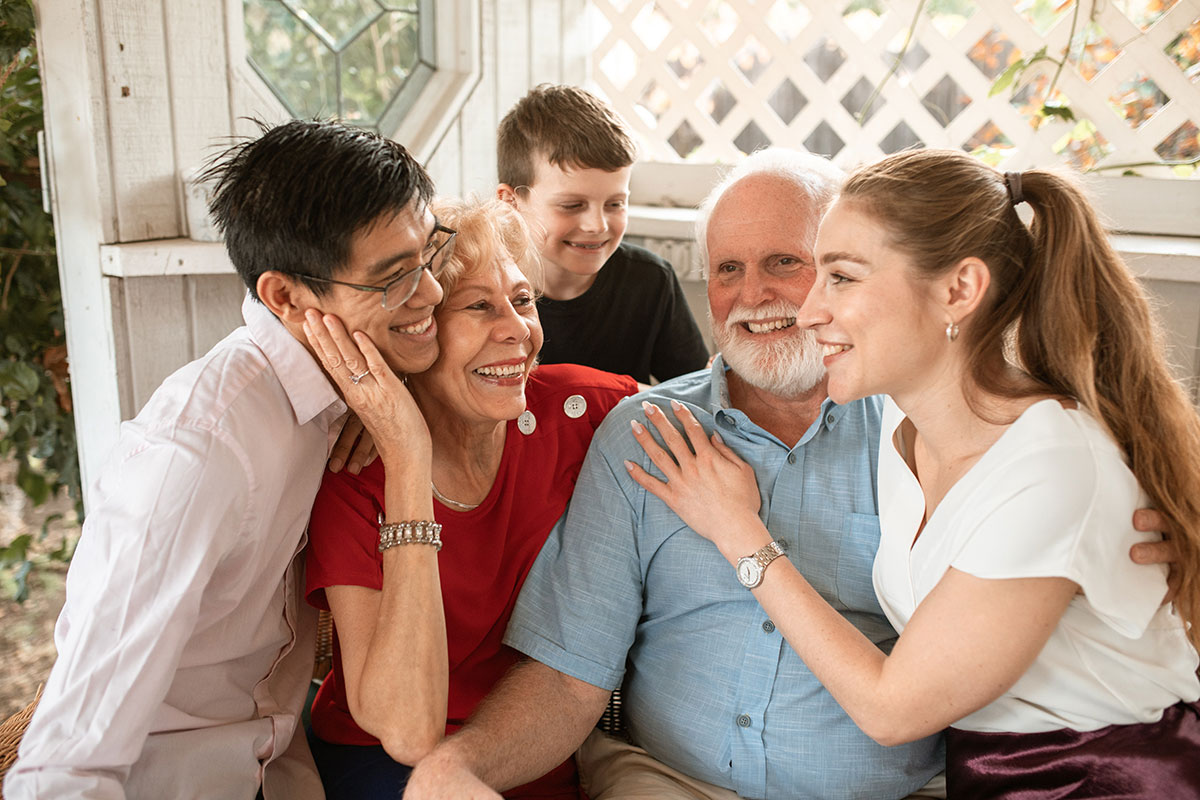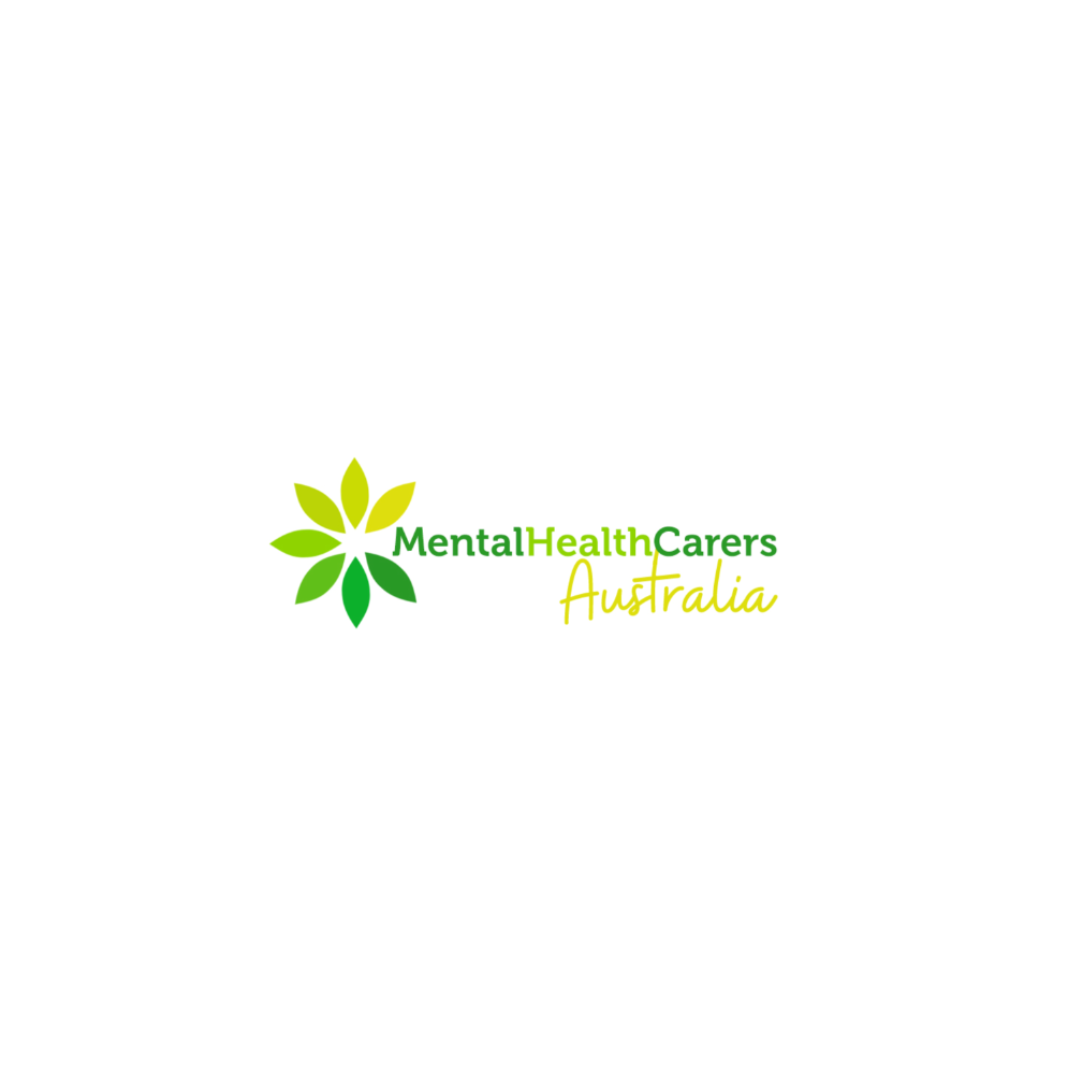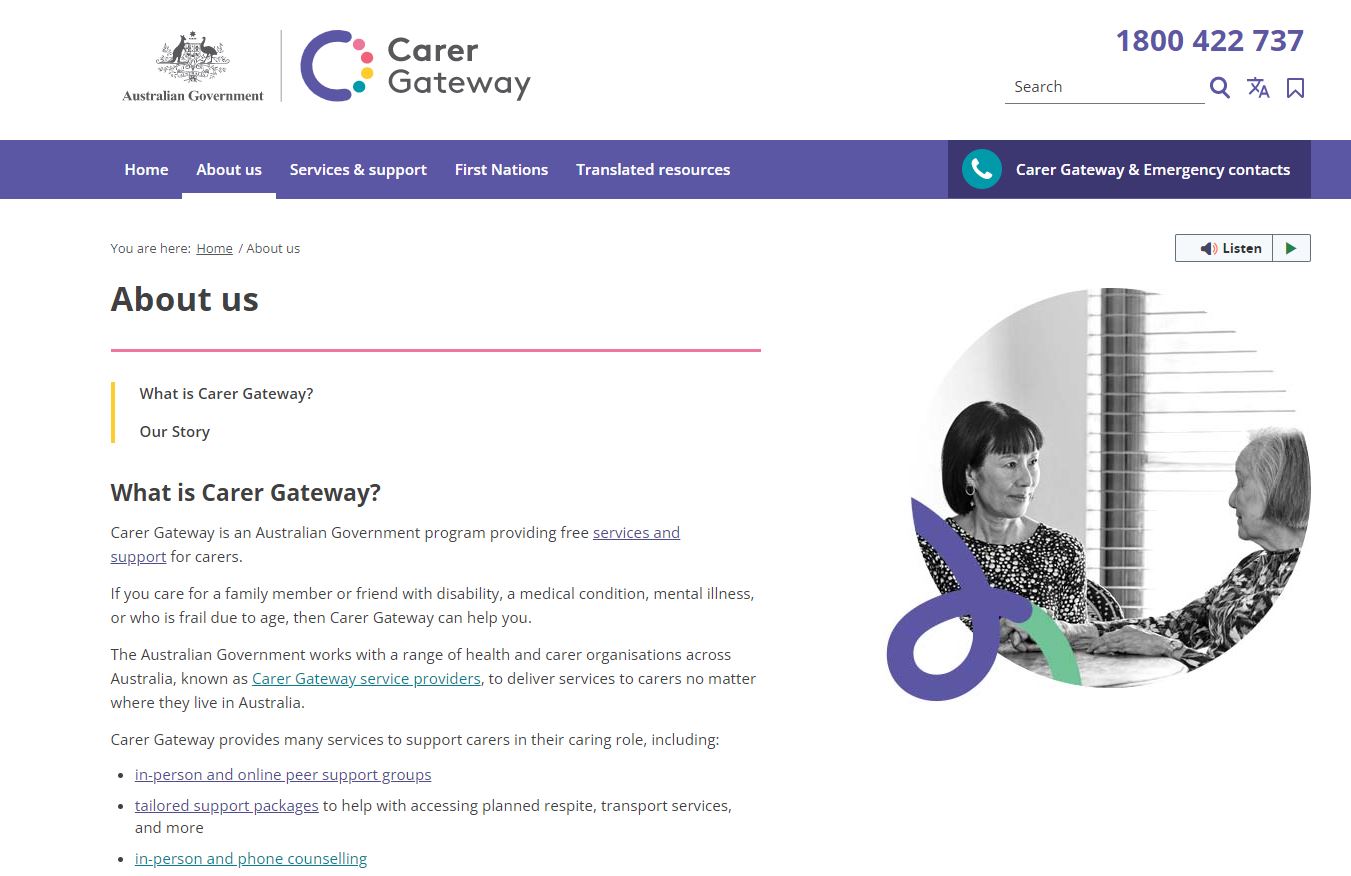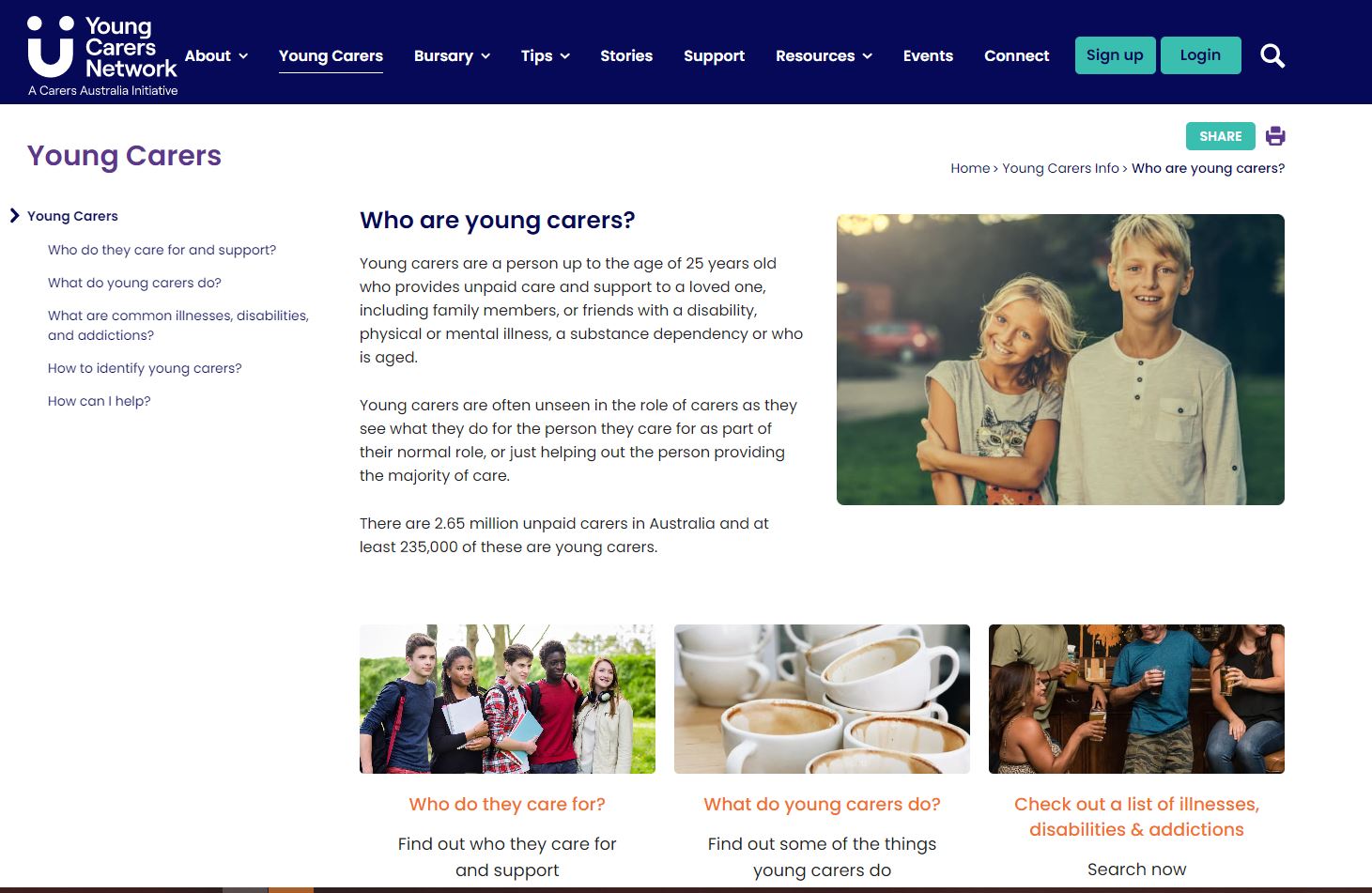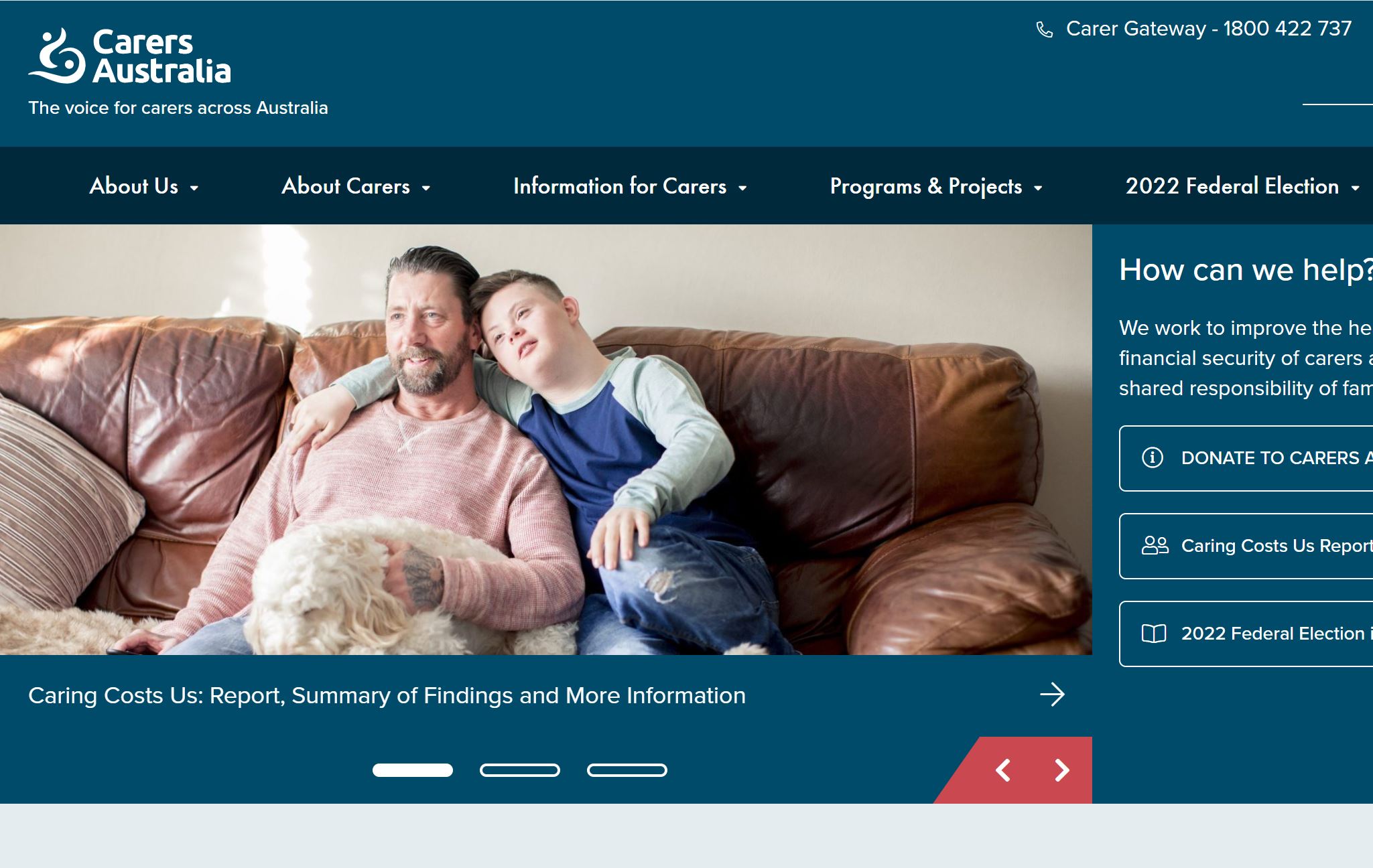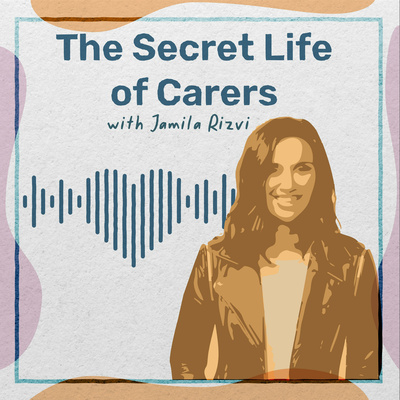Overview
When someone close to you is experiencing a mental health condition it can feel confusing and overwhelming at times however it is important to know that you are not alone.
A National study conducted by the Australian Bureau of Statistics (ABS) during 2020 – 2021 found that more than two in five Australian’s aged 16- 85yrs had experienced a mental health condition during their life. – (Australian Bureau of Statistics). That’s more than 40% and with statistics like this it is not surprising that many of us will be touched by mental health illness at some point in our lives.
When caring for someone who is experiencing mental ill health there are a few important things to remember.
- Be patient. It may take time for you both to process any changes that are occurring in your lives and to adjust. Whether a person is experiencing a physical or mental health condition healing and recovery take time.
- It can be helpful to understand a health diagnosis and how it can affect a person however don’t define the person by their illness. They are still your friend, parent or family member that you love.
- Research can be helpful however you can also learn a lot from the experience of others. You may find it helpful to listen to stories and advice from other caregivers and family members who have been where you are.
- And one of the most important things to remember, look after yourself.
Connect with Mental Health Carers Australia
Want to connect with others who understand the mental health caring journey?
Mental Health Carers Australia (MHCA) is the national peak body for families, carers, and kin supporting people living with mental health conditions. You can join their community to stay informed, share your experiences, take part in carer forums, and help shape national advocacy for carers.
Supporting yourself
When a loved one becomes unwell it is not uncommon for family members and friends to take on the role of a caregiver. Whether they are experiencing poor physical or mental health it is human natural that you want to help the people you love. But in the midst of all of this it is important that you take the time you need to look after your own health and wellbeing. Sometimes this may seem easier said than done however by not engaging in a little self care you are putting your own mental and emotional health at risk and could be setting yourself up to fail.
It is not uncommon for people taking on a care giver role to experience feelings of grief, stress, isolation, depression, or anxiety. Remember you are not alone and your health and wellbeing is just as important as the person you care for.
Here are a few tips on how you can look after yourself as a carer or family member of a person living with a mental health condition.
Talk to someone:
Talking to a professional counsellor, your GP, a friend or others care givers is a good way to stay connected and provides you with an opportunity to talk about how you are feeling.
Remember it is ok to admit if you are feeling overwhelmed, frustrated, or exhausted, however this may also be an indicator that it is time to contact your health professional or a counsellor.
There are a number of face to face, phone and online support services available to families and carer givers across Australia including:
Make time for you:
Let’s face it most of us find our day to day schedules are already quite full and the thought of adding in anything extra can seem impossible. If self-care is something you feel you haven’t done too well in the past, try setting aside 15 – 20 minutes a day to do something you enjoy. Whether its taking a hot shower with some music on, walking the dog by yourself or having a 10 minute coffee break in between errands.
Down the track you can extend the time or even add in some extra activities but for now every minute counts and brings you one step closer to better self-care.
Relaxation:
Meditation and relaxation techniques can help you manage your stress levels and even improve your sleep. Whether you prefer the simple sounds of nature or a guided meditation there are a variety of apps available for download directly to your device.
If technology isn’t your strong point try visiting your local library, most will have a selection of audio books or music CD’s for you to chose from and who knows what else you may discover while you are there.
If none of those seem like the right option for you, and you enjoy group activities, community centres, halls and local parks often run free or discounted community classes such as yoga or meditation so it could be worth heading down to your local centre and checking out the notice board.
Physical Health:
Maintaining a healthy diet and staying active can be difficult if you are time poor however good nutrition and adequate exercise both play important roles in looking after your physical and mental health.
Eating well not only improves your energy levels but assists in regulating your mood and can help in the prevention and treatment of physical and mental health issues. If you aren’t sure what foods are best for your body a nutritionist or dietician can be helpful. You can access specialist services through private practice or by GP referral.
If you are time poor or are not someone who enjoys a lot of physical activity try starting with something simple like walking or stretching. Just 30 minutes a day is a great way to get in the habit of exercising. This could be walking the dog, parking the car an additional street away to increase your steps, or you could even try a few minutes with a skipping rope at home.
If you don’t enjoy the gym or exercising with others there are YouTube videos and apps available that provide workouts for all levels.
Sleep:
You may find that sleep is mentioned quite a lot when reading about supporting mental health and wellbeing and there is a simple explanation for that. Sleep is important. Sleep provides your body and mind with a chance to recharge and reset and is also linked to physical and mental health.
If you are finding it difficult to sleep here are a few things to consider.
- Limit or remove caffeine and alcohol intake before bed. If you enjoy something warm in the evening try a glass of warm milk or decaffeinated tea.
- Avoid using screens and electronic devices at least 60 -90 minutes before bed. Too much exposure to screens before bed can disrupt our body’s natural sleep process and hormones.
- Try not to force your body to stay awake longer than it wants to. If you feel tired lay down and try to get some rest. If you are having trouble falling to sleep take a time out. Get up and listen to some music, read, take another hot shower or try some meditation to help you relax then try again.
Socialise:
Feelings of loneliness and isolation can negatively impact your mental health so it is important to try and maintain contact with your friends whether it be a 10 minute phone call once a week or a regular coffee date.
If you have a hobby or activity that you enjoy make time to continue this. A little time doing the things you love can really lift you mood and improve your mental and emotional state.
Respite:
It is ok to need some time out and it is ok to ask for and accept help. Letting someone else help with the carer role can benefit both you and your loved one and gives you time to reset and recharge.
The length of respite care can differ depending on what type of respite care you choose. Care can be for few hours with the help of a friend or family member or for several days or weeks through a service provider. It can take place at home or at a day or residential centre.
Certain types of respite will require an assessment be complete to determine eligibility and the type of care required. If you are seeking Emergency Respite contact Carer Gateway.
Services:
There is no one size fits all when it comes to finding the right supports for someone. As a caregiver or family member it is natural to want the best for your loved one however it is important to also know what types of supports are available for you.
There are a number of services available to caregivers including:
- counselling
- respite
- emergency respite
- forums
- support groups
- online courses
- financial support
For more information about what services are available in your local area, contact Carer Gateway.
Supporting another person
If someone you know has taken on the role of a caregiver you may find that they no longer have as much time to spend with you as they did in the past. Remember this isn’t personal, and doesn’t mean they need you any less.
Here are a few tips for supporting someone in a caregivers role:
- Be patient, give them time to adjust. Sometimes people just need space and some time alone.
- Just because they aren’t able to attend every social occasion you are inviting them too doesn’t mean you should cease to invite them. Continuing to include them is an important way you can let them know that you haven’t forgotten them and that you still value your relationship.
- Listen without judgement. Everyone needs somebody they can openly talk to.
- Often practical help like picking up some groceries for them or helping with the housework or meal preparation.
- Speak to the experts. By calling your local carers service you can get advice on how to support your friend or family member as well as find out more about services available to them.
Podcasts
How we can help
If you or someone you know is in crisis
If you are worried you may harm yourself or someone else, or need immediate help for someone else in this situation:
Please call 000If you are in distress
Other helplines
- Beyond Blue | 1300 22 4636
- Open Arms – Veterans & Families Counseling | 1800 011 046
- MensLine Australia | 1300 78 99 78
- Defence All Hours Support Line | 1800 628 036
- QLife | 1800 184 527
- 13YARN| 13 92 76
Please select a state you live in
Suicide Call Back Service. Free professional telephone counselling & online chat available at suicidecallbackservice.org.au
Available 24/7
1800RESPECT Domestic Violence Counselling & Support Line. Online Chat at 1800respect.org.au or SMS on 0458 737 732
Available 24/7
13YARN First Nations Peoples Crisis Support Line. Call to talk with an Aboriginal or Torres Strait Islander Crisis Supporter
Available 24/7
Defence All Hours Telephone Support Line. For Australian Defence Force (ADF) members and their families
Available 24/7
Health Direct. Speak to a registered nurse for healthcare advice. healthdirect.gov.au
Available 24/7
Beyond Blue. Online counselling, forums, and webchat - beyondblue.org.au
Available 24/7
Access Mental Health Line. For people who have concerns about their own, or someone else’s mental health
Available 24/7
Medicare Mental Health Centre Canberra. Phone, request a call canberrammhc.com.au.
Monday, Wednesday & Friday: 8.30am-5:00pm. Tuesday & Thursday (extended hours): 8:30am-7:00pm
NSW Hospital and Health Services State-wide Mental Health Line. Speak to a trained Mental Health Professional
Available 24/7
Medicare Mental Health. Phone to find your nearest centre. Support through Medicare Mental Health Centres are free. No appointment or GP referral is required. Visit www.medicarementalhealth.gov.au
Hours vary.
NT Mental Health Line. For people who have concerns about their own, or someone else’s mental health. Speak to a trained mental health professional.
Available 24/7
Darwin Medicare Mental Health. Clinical Assessment and Treatment. Call, walk-in (16 Scaturchio St, Casuarina.)
Mon - Wed and Fri: 9am - 9pm; Thur: 1pm - 9pm; Sat - Sun (and public holidays): 12pm - 8pm
13 HEALTH. A confidential phone service that provides health advice. Call to talk to a registered nurse.
Available 24/7
1300 MH Call. A confidential mental health telephone triage service providing information, advice and referral.
Available 24/7
Medicare Mental Health. Phone to find your nearest centre. Support through Medicare Mental Health Centres are free. No appointment or GP referral is required. Visit www.medicarementalhealth.gov.au
Hours vary.
SA Mental Health Triage. A confidential mental health telephone service, staffed by mental health clinicians, providing information, advice and referral.
Available 24/7
Urgent Mental Health Care Centre (UMHCC) located at 215 Grenfell Street, Adelaide, offers an alternative to presenting at hospital Emergency Departments for a mental health crisis.
Available 24/7
Medicare Mental Health. Phone to find your nearest centre. Support through Medicare Mental Health Centres are free. No appointment or GP referral is required. Visit www.medicarementalhealth.gov.au
Hours vary.
LETSS Lived Experience Telephone Support Service (Adelaide Metro). letss.org.au
5pm - 11:30pm, 365 days a year
Access Mental Health- Helpline Triage offering phone counselling, information and referral.
9am - 10pm
Medicare Mental Health. Phone to find your nearest centre. Support through Medicare Mental Health Centres are free. No appointment or GP referral is required. Visit www.medicarementalhealth.gov.au
Hours vary.
Victoria Psychiatric Triage providing an initial assessment and identifies whether a person needs further assessment or referral.
Available 24/7
Geelong Head to Health. Call or walk-in at 8 Station Street, Norlane.
Monday–Friday, 12pm–9pm and Saturday–Sunday/public holidays, 1pm – 6pm
Medicare Mental Health. Phone to find your nearest centre. Support through Medicare Mental Health Centres are free. No appointment or GP referral is required. Visit www.medicarementalhealth.gov.au
Hours vary.
Rurallink - An after-hours telephone service for people in rural and regional WA experiencing a mental health crisis
Weeknights 4:30pm-8:30am / 24hrs on Weekends and Public Holidays
Peel -Mental Health Emergency Response Line. Call to speak with a trained mental health clinician. Callers referred to acute response teams.
Available 24/7
TTY - Mental Health Emergency Response Line.Call to speak with a trained mental health clinician. Callers referred to acute response teams.
Available 24/7
Metro - Mental Health Emergency Response Line. Call to speak with a trained mental health clinician. Callers referred to acute response teams.
Available 24/7
Medicare Mental Health. Phone to find your nearest centre. Support through Medicare Mental Health Centres are free. No appointment or GP referral is required. Visit www.medicarementalhealth.gov.au
Hours vary.
Please select a state you live in
Service Options
**** *****
**** ***** * *********** *********** ***
**** ***** ********* *****
**** ***** * *********** *********** ***
**** ***** ********* *****
**** ***** * *********** *********** ***
**** ***** ********* *****
**** ***** * *********** *********** ***
**** ***** ********* *****
**** ***** * *********** *********** ***
**** ***** ********* *****
**** ***** * *********** *********** ***
**** ***** *****